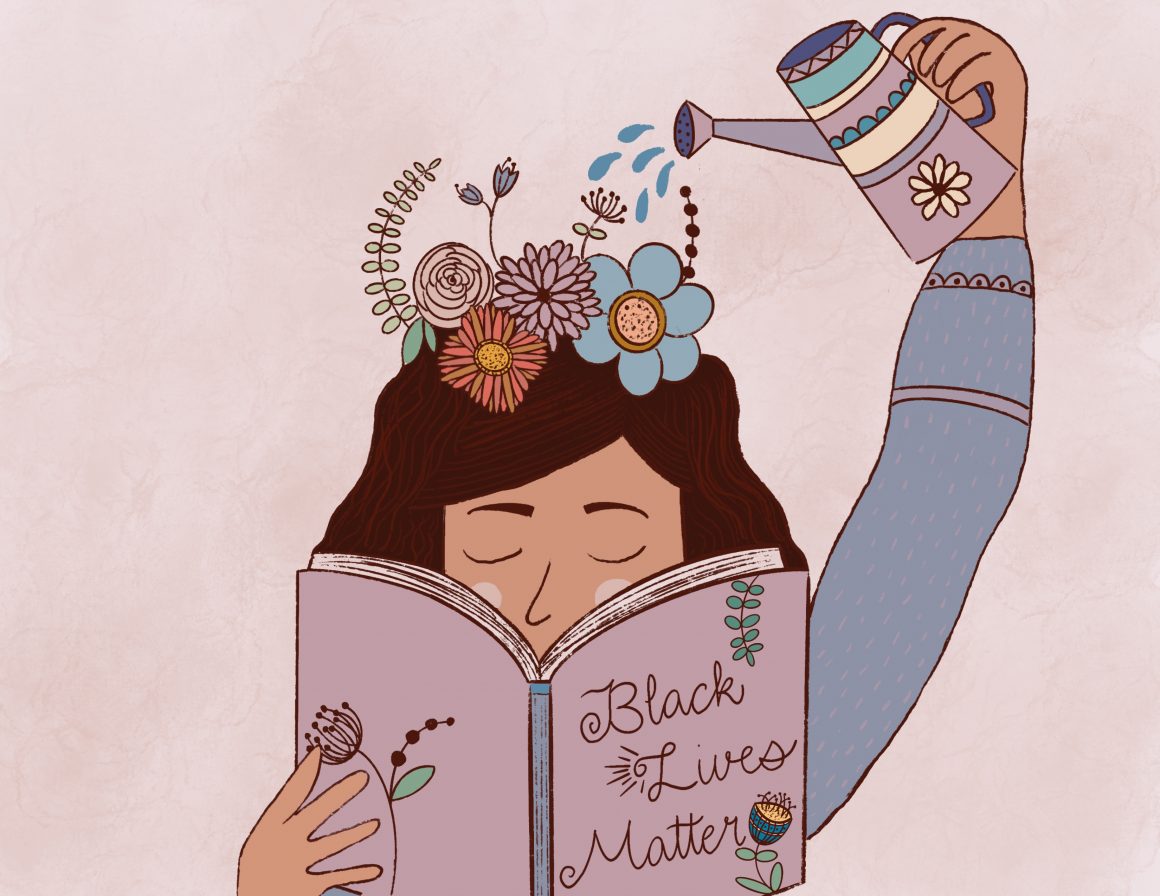
Deconstructing Racism in the South Asian Community: We must take steps to counteract anti-Black rhetoric
By Nikita Nukala, June 18 2020—
Most of my South Asian friends and I have been given a gift that we didn’t know we had for a long time — we grew up in communities where we had the luxury of being surrounded by our own culture and we have been able to take our time to handle the consequences of our own diaspora. This isn’t the case for all South Asians living in Canada, but it is a fundamental truth that we as a people are protected in a manner that contributes to harmful stereotyping and further justification of racism.
While we suffer from misidentification and threats that have emerged in a post 9/11 world, the racism we know and experience is generally in the form of microaggressions. These concerns are valid, but what we face on a daily basis cannot be compared to the injustices inflicted upon George Floyd, Ahmaud Arbery, Breonna Taylor, Trayvon Martin, Sandra Bland, Eric Garner, Tamir Rice and countless others. As South Asians, we are allowed to exist in a way that the Black community is not.
A part of the reason for this is something called the Model Minority myth. As a condensed definition, it is the false belief that our being South Asian makes us more valuable or peaceful members of society. This is due to the stereotype that Asian immigrants and their children perform better, academically or otherwise, and are therefore more successful in their endeavours than any other person. Our lives are perceived as being worth more simply because of the stereotypes we have been associated with, along with our potential monetary value to employers. It has become glaringly obvious that if we embrace this myth we become guilty of giving in to the very systems that we claim to have fought against. If we so badly want to become more than a stereotype, we need to dissect how this model does more harm than good especially to those outside of our community.
A necessary acknowledgement to make is that we have historically contributed to anti-blackness and discrimination against our minorities as well. We can simply look towards lndia’s leadership, past and present. Mahatma Gandhi’s own grandson wrote that Gandhi was “at times ignorant and prejudiced about South Africa’s blacks.” Perhaps it is futile to search for perfection or total political correctness in the strongest and most influential voices of our past. However, India’s current Prime Minister, Narendra Modi, has displayed harmful tactics similar to Donald Trump’s promotion of white nationalism and supremacy towards India’s own religious minorities. In addition to this, he’s done little to actually amend the harsh consequences of India’s caste system. It is apparent that much of the community benefits from this distance, where they can be seen as better or more worthy of justice.
South Asians as a whole, though, have another issue that takes the form of colourism. All of us have heard of brands such as Fair & Lovely, which sell skin-bleaching agents promoted by Bollywood’s biggest stars, most of whom now reach individuals on a global scale. Shah Rukh Khan, Priyanka Chopra, Katrina Kaif, Aishwarya Rai and Deepika Padukone, to name a few, have all endorsed some version of skin-bleaching cream in the past. While colourism emerged under British colonial rule, the perpetuation of these beauty standards by our communities is a manifestation of our internalized racism. Your own parents or family members may be careful enough to make an attempt at breaking this cycle, but the messaging sent by Bollywood and its stars is heard and unknowingly internalized within South Asians everywhere.
This is why the differentiation between Black people and other racial minorities matters. The umbrella term, “people of colour,” does not apply to this situation. We have not been united in this struggle. We cannot empathize if we are part-contributors to it. If you aren’t Black, then it is your job to continually counteract anti-Black rhetoric in your communities.
I recently watched a video of an NYPD car plowing through a group of protesters who were standing peacefully behind a barricade. In Toronto, a protest took place to demand justice for Regis Korchinski-Paquet, whose case is further proof that Black people, even in Canada, are unable to rely on the police’s assistance in the way that we are. It’s difficult to start with ourselves when we actively see so much injustice at the hands of others, but deprogramming these subliminal messages that we carry is a significant step. The hardest part of the task is to drop our own defences and instead assess where we stand, so that we can do better and demonstrate our support wholly.
I am aware that many of us cannot go out and protest safely for a variety of reasons, such as having immunocompromised individuals at home. But when people post resources for how to help in other ways on social media, take them seriously and discuss why this matters with your family. Donate if you can. Sign and share petitions, keep steady in your support even once the wave of anger from influencers and news outlets diminishes and start by making a shift in your discussions at home. Now is the time for self-reflection and real reform.
This article is part of our Opinions section and does not necessarily reflect the views of the Gauntlet’s editorial board.
